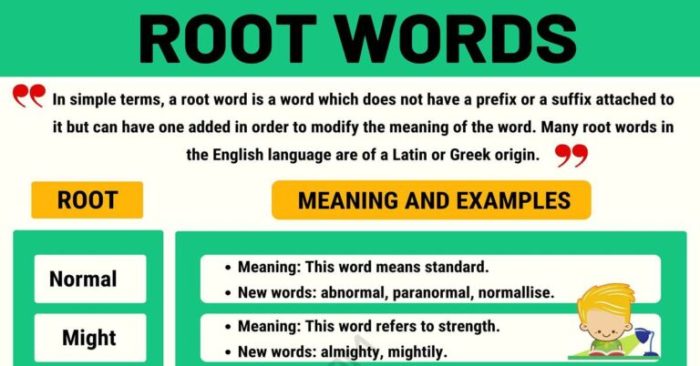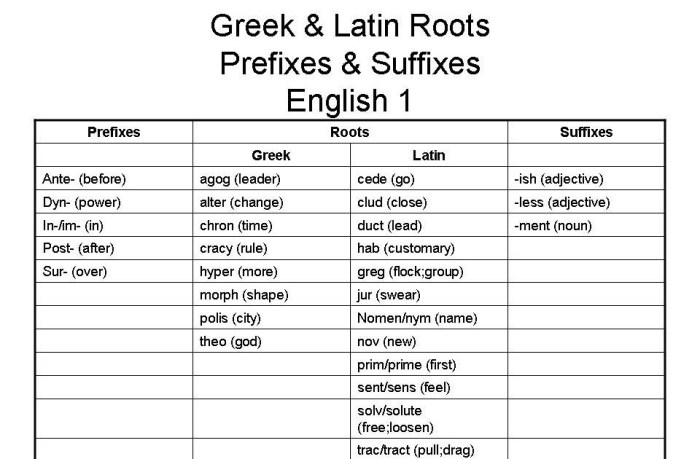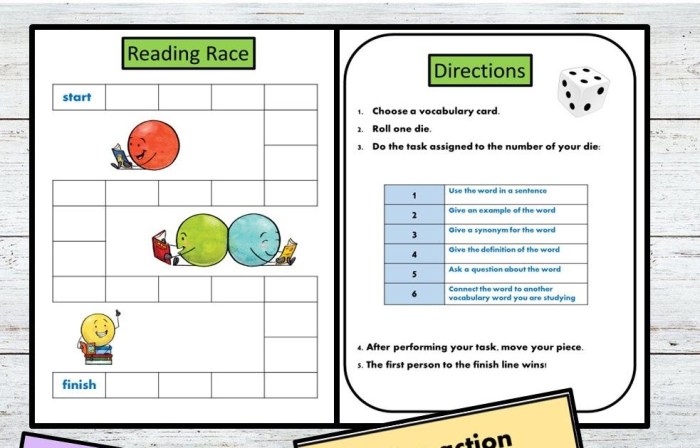Words with the root poli – Embark on a linguistic journey as we delve into the fascinating world of words with the root “poli.” From its ancient origins to its diverse usage in literature and beyond, this root holds a wealth of stories waiting to be uncovered.
Tracing its etymology, we uncover the historical evolution of “poli” and its multifaceted meanings across languages. We’ll examine how this root has shaped literary works, adding layers of depth and nuance to the written word.
Words with the Root “Poli”

The root “poli” in Latin means “city”. It is found in many English words related to government and urban areas.
Here is a comprehensive list of words with the root “poli”:
Nouns
- Police: A group of people employed to maintain public order and safety.
- Policy: A course of action adopted by a government, organization, or individual.
- Politics: The art or science of government.
- Politician: A person who is involved in politics.
- Polity: A political community or state.
- Metropolis: A large, densely populated city.
- Cosmopolis: A city that is inhabited by people from all over the world.
Adjectives
- Political: Relating to government or politics.
- Policy-oriented: Focused on developing and implementing policies.
- Politically correct: Conforming to the prevailing standards of political correctness.
Verbs
- Politicize: To make something political.
- Politick: To engage in political activity.
Etymology of “Poli”

The root “poli” originates from the Greek word “polis,” meaning “city-state.” In ancient Greece, a polis was a self-governing community that typically consisted of a central city and its surrounding territory. The term “poli” has since been adopted into various languages, where it has acquired different meanings and connotations.
In Latin
In Latin, “poli” became “polis,” which referred to the Roman city-state. The term was later used to describe any city or town, and it eventually came to mean “state” or “government.” This meaning is reflected in words such as “police” (from “politia,” meaning “government”) and “politics” (from “politeia,” meaning “affairs of the state”).
In English
In English, “poli” has been used to form words related to government and society. For example, “polite” means “having good manners,” which reflects the importance of social order in a city-state. The word “policy” refers to a course of action adopted by a government or organization, while “politics” refers to the activities associated with governing a state.
Usage of “Poli” in Literature
The root “poli” has found its way into the literary realm, adding layers of meaning and depth to various works. Authors have employed this root to explore themes of power, governance, and societal structures.
Shakespeare’s “Julius Caesar”
In Shakespeare’s “Julius Caesar,” the word “policy” appears in a crucial scene where Brutus and Cassius discuss the assassination of Caesar. Brutus argues for a “noble and right” approach, while Cassius advocates for a more pragmatic and ruthless “policy” to achieve their goal.
This juxtaposition highlights the tension between idealism and practicality in political decision-making.
Machiavelli’s “The Prince”
Niccolò Machiavelli’s “The Prince” is a treatise on statecraft that explores the nature of power and the strategies rulers should employ to maintain it. The word “policy” is used extensively throughout the work, emphasizing the importance of carefully calculated actions and the manipulation of public opinion to achieve political objectives.
Words with the root poli, meaning “city,” are found in many languages. For instance, the Greek word “polis” means “city-state.” Interestingly, the upcoming 65th birthday of Mrs. Chen is also a significant milestone in her life, a personal “city” she has built over the years.
Returning to our linguistic exploration, the Latin word “urbs” (city) also shares this root, showcasing the widespread use of “poli” in denoting urban centers.
Orwell’s “Animal Farm”
In George Orwell’s allegorical novel “Animal Farm,” the pigs use the word “policy” to justify their oppressive rule over the other animals. The pigs’ “policies” serve to maintain their power and control, exposing the hypocrisy and corruption that can accompany political power.
Modern Literature
In contemporary literature, the root “poli” continues to be used to explore political themes. Authors such as Salman Rushdie and Toni Morrison have employed words like “police” and “policy” to examine the intersections of power, race, and social justice in modern societies.
Political Implications of “Poli”

The root “poli” carries significant political implications and connotations. Words derived from this root have been extensively employed in political discourse and propaganda, often to convey specific messages or shape public opinion.
One prominent aspect of the political implications of “poli” lies in its association with the concept of authority and governance. Words like “politics,” “policy,” and “politician” all evoke notions of power, decision-making, and the exercise of influence within a society.
Political Discourse
In political discourse, words with the root “poli” are frequently used to frame debates, justify actions, and persuade audiences. Politicians and pundits may employ terms like “political correctness,” “politicization,” and “political agenda” to advance their arguments or discredit opponents.
Propaganda, Words with the root poli
Propaganda, a form of strategic communication, also heavily utilizes words with the root “poli.” By using terms like “political indoctrination,” “political manipulation,” and “political ideology,” propagandists aim to influence public opinion, shape perceptions, and promote specific political agendas.
Cultural Significance of “Poli”: Words With The Root Poli

The root “poli” carries deep cultural significance and symbolism in various societies worldwide. Words derived from this root reflect societal values, beliefs, and the collective human experience.
Political Power and Governance
In many cultures, words with the root “poli” are associated with political power and governance. For instance, the term “politics” itself originates from the Greek word “polis,” meaning “city-state.” In ancient Greece, politics was a central aspect of civic life, involving debates, assemblies, and decision-making processes that shaped the community’s affairs.
Community and Public Life
The root “poli” also encompasses the concept of community and public life. In Roman society, the term “politeia” referred to the constitution or governing system of a city-state. It emphasized the collective nature of governance and the participation of citizens in shaping their society.
Ethics and Morality
In certain cultures, words with the root “poli” are associated with ethics and morality. For example, the term “politesse” in French refers to good manners and polite behavior. It reflects the importance of social etiquette and respect for others in maintaining a harmonious community.
FAQ
What is the origin of the root “poli”?
The root “poli” traces its origins to the Greek word “polis,” meaning “city-state.” Over time, it has evolved to encompass a wide range of meanings related to government, society, and culture.
How is the root “poli” used in literature?
Authors have employed the root “poli” to explore themes of power, authority, and the complexities of human relationships. It adds depth and nuance to literary works, inviting readers to contemplate the political and social implications of their actions.